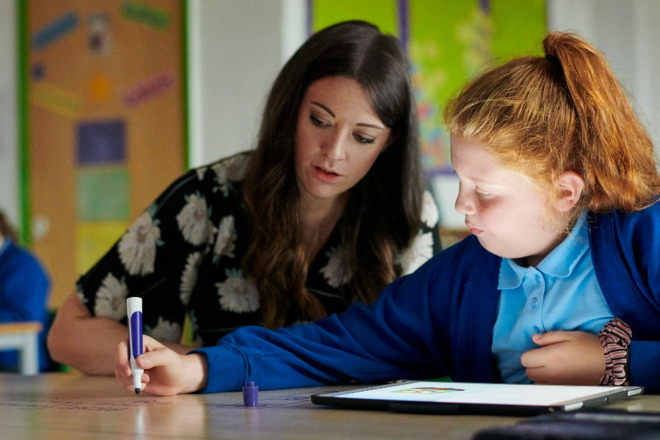Apple's Swift being taught across Europe in EU Code Week
The European Union's annual Code Week is working with Apple's Swift language and Everyone Can Code initiative to introduce programming to teachers and students of all ages and abilities.

Apple's Swift and Swift Playgrounds are being used in schools and colleges across Europe
This month, the European Union is running its annual series of Code Week initiatives with projects taking place between October 5 and 20. Apple is championing the EU's campaign which sees both its Swift language and Everyone Can Code events involved.
Apple is highlighting the work of selected education establishments in the project, ranging from a primary school in England to an adult learning course in Italy.
"Meet teachers Alice Nutt and Clare Scott," says Apple in a press release. "They were introduced to coding only two years ago, and now use Swift Playgrounds to incorporate coding principles into every subject they teach to their young pupils at Layton Primary School in Blackpool, England."
Scott says that the use of Swift Playgrounds has changed how students now engage in subjects.
"Children would sit there [before] and wait for things to happen," she says. "But children with a coding mentality know that if they do something, something will happen. There will be an output if they put in an input -- they are more resourceful in terms of being able to tackle problems."
Nutt offers that coding fits with every subject from science to the arts.
"We realized we'd already been using the skills of coding everywhere in the curriculum," she says. "When we write, we go back and edit and improve it -- we were debugging. We sequence stories, we sequence events and things that we do in our everyday lives. So it's just making everyone at the school realize that coding really is all around you."

Teacher Alice Nutt using Swift Playgrounds in Blackpool, England
Apple also spoke to Belinda Tagariello, who had been a student in Italy and is now teaching others how she has developed her own app.
"When I started to develop the app, I started to feel free because I could do it myself," says Tagariello. "When I found this, I found my way."
So far she has taught 41 students over the last two years, and in total they have developed 14 apps. Some 16 of her students now have jobs in the technology industry.
Apple says that over 5,000 educational establishments are using the company's Everyone Can Code curriculum.
EU Code Week is an annual series of events that features Apple among more than two dozen different projects for teachers and students, featuring tools and programming languages from Swift to Python.

Apple's Swift and Swift Playgrounds are being used in schools and colleges across Europe
This month, the European Union is running its annual series of Code Week initiatives with projects taking place between October 5 and 20. Apple is championing the EU's campaign which sees both its Swift language and Everyone Can Code events involved.
Apple is highlighting the work of selected education establishments in the project, ranging from a primary school in England to an adult learning course in Italy.
"Meet teachers Alice Nutt and Clare Scott," says Apple in a press release. "They were introduced to coding only two years ago, and now use Swift Playgrounds to incorporate coding principles into every subject they teach to their young pupils at Layton Primary School in Blackpool, England."
Scott says that the use of Swift Playgrounds has changed how students now engage in subjects.
"Children would sit there [before] and wait for things to happen," she says. "But children with a coding mentality know that if they do something, something will happen. There will be an output if they put in an input -- they are more resourceful in terms of being able to tackle problems."
Nutt offers that coding fits with every subject from science to the arts.
"We realized we'd already been using the skills of coding everywhere in the curriculum," she says. "When we write, we go back and edit and improve it -- we were debugging. We sequence stories, we sequence events and things that we do in our everyday lives. So it's just making everyone at the school realize that coding really is all around you."

Teacher Alice Nutt using Swift Playgrounds in Blackpool, England
Apple also spoke to Belinda Tagariello, who had been a student in Italy and is now teaching others how she has developed her own app.
"When I started to develop the app, I started to feel free because I could do it myself," says Tagariello. "When I found this, I found my way."
So far she has taught 41 students over the last two years, and in total they have developed 14 apps. Some 16 of her students now have jobs in the technology industry.
Apple says that over 5,000 educational establishments are using the company's Everyone Can Code curriculum.
EU Code Week is an annual series of events that features Apple among more than two dozen different projects for teachers and students, featuring tools and programming languages from Swift to Python.


Comments